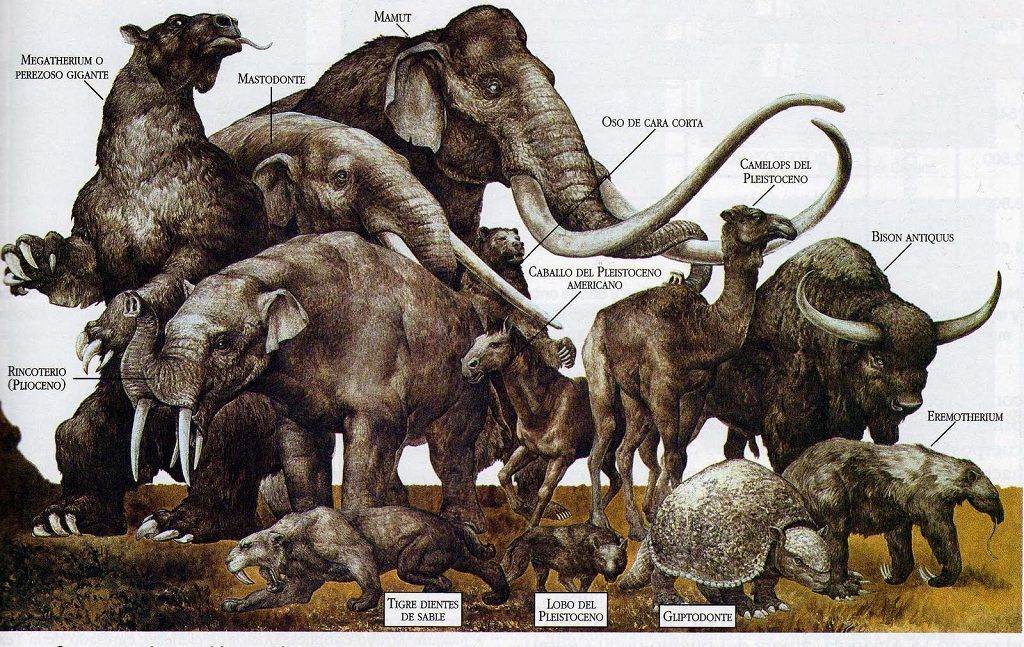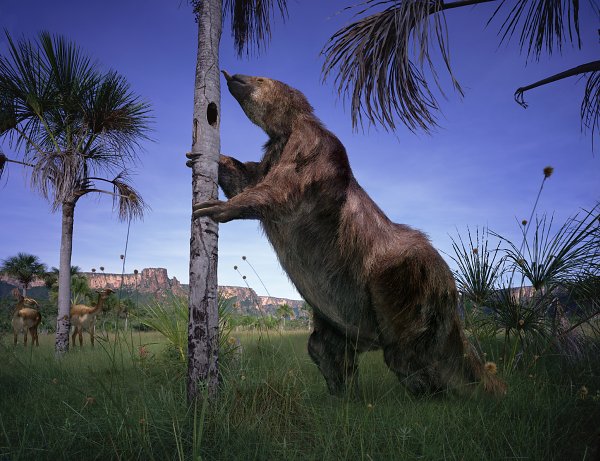
If you ever want to get a real perspective on the destruction our species has done to the planet and most of the other species on this earth, this is a great read. I was fascinated by the accounts of our ancestors spreading from Africa to the rest of the world. I read in horror that after several thousand years of Sapiens arriving in a new place, like Australia or North and South America how the native fauna was wiped out – and evidence that this most the cause was our own species

I loved learning about the giant Megatherium – A giant sloth

Or the large Marsupial mega fauna as well as the Thylacine. Equally fascinating to me was to realize how Sapiens lived contemporary with a number of other human species like the Neanderthals and others.

These other species Harari gives evidence that they were probably also casualties of the expansion of Sapiens.
The last part that made me completely sad was the chapter on “Life on the conveyer belt” or the life of domesticated animals such as cows, pigs, and chickens that we have mass produced and consumed making these animals completely miserable in the process. This is another good reason to make me want to be a vegan. While everyone has a problem with how the sausage gets made people still eat the sausage. (I had some tonight in fact!) However, this part has influenced me to want to live a more plant based diet.
By midway through the book I was quite sad about the human race. It seemed very tragic and unnecessary. But then I felt there was a period in the book, after all the wars to the present time to where I started feeling good. Harari mentioned how low the chance of war is right now in many parts of the world. Comparing life now and 500 years in the past things are quite good. I started realizing that many humans are realizing the extent of the damage and are hoping to take responsibility. For the first time in all these millennia it looked as if humans were starting to try to do something good.
But then just as you were starting to feel good about all the great things that are happening because of the age of science and admitting we don’t have all the answers you get lambasted with all the crazy things that are about to happen: How our species will eventually be extinct because of our own doing. Not because we’ll blow ourselves up (although that is a possibility he doesn’t deny), but because we will transform our own species through scientific discovers. These bring up new issues:
- If we as a species are able to become a mortals by curing nearly all diseases then who gets to decide who gets to live forever? Harari mentions that for years the consolation of the poor has been that the rich have the same 24 hours every day and their time is limited the same as any man. How unfair it is that they would now get to live longer. (As if anything is fair in life or even should be)
- If we are a species are able to enhance our minds to become super humans, who gets to have this procedure done? Do we start making different classes of humans with the un-enhanced humans eventually being made extinct over time?
- What about when we are able to read each others mind and share a common brain, and download the memories of one person into our own brain? Is that person us or are we still an individual?
The future from this perspective looks wild and perhaps a bit scary to live in.
Finally the message I get from the book is that everything is temporary for us humans and that meditation and trying to free ourselves from wants seems to be the only way to be happy. The author goes on to explain how Buddhism practices may be the closest ways people can be truly happy. While I appreciate the scientific evidence and thoughts he brought up, I can’t help but thinking there was a bit of a slant to it. But of course there was! History is always slanted with some bias. However, I will say, no matter what your beliefs, you will learn a lot and this book will really cause you to think about your own place in the cosmos. Two thumbs up!